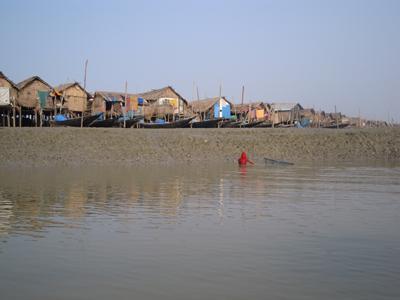Learning how climate change will affect people who live in river deltas

Postgraduate researchers investigating how people who live in three delta regions in Asia and Africa are adapting to the effects of climate change have been sharing the plans for their work at an inaugural seminar at the University of Southampton.
Notes for editors
The PhD students* are all funded by a five-year international and interdisciplinary collaboration led by Robert Nicholls, Professor of Coastal Engineering. The DECCMA (Deltas, Vulnerability and Climate Change: Migration and Adaptation) Project is analysing the impacts of climate change across the Ganges-Brahmaputra-Meghna (Bangladesh and India), Mahanadi delta in India and the Volta delta in Ghana. Their topics ranged from morphology to food security and social enterprise and innovation and more than 50 people including delegates from Oxfam and Sussex University took part in the discussions.
“This was a valuable opportunuty for our students to showcase their research across the wide range of subjects covered by the project,” says Consortium Co-ordinator Jon Lawn. “As DECCMA develops, we will also be directly sharing the fruits of our work with communities living in the deltas we are studying in Asia and Africa.”
DECCMA also involves academics from Geography and Social Sciences at Southampton. It is funded by the UK Government’s Department for International Development (DFID) and Canada’s International Development Research Centre. Partners include the Basque Centre for Climate Change, University of Exeter, Kulima Integrated Development Solutions (South Africa), Plymouth Marine Laboratory and University of Dundee as well as partners in Ghana, Bangladesh and India.
*Sarah Spinney, Gregory Cooper, Qazi Waheed-Uz-Zaman, Tristan Berchoux, Margherita Fanchiotti and Giorgia Prati (based in Geography).